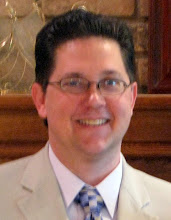Lately I've been listening to podcasts. I listen to all three sister podcasts in the Escape Artists family: Podcastle for Fantasy, Escape Pod for Science Fiction, and PseudoPod for Horror.
Now, I don't particularly like Horror as a genre. I don't watch Horror movies, I don't read Stephen King or any of the horror greats much, and honestly, there are over 30 stories from Pseudopod on my iphone at the time of this writing that I haven't gotten around to listening to yet.
So, why am I telling you, a beginning writer, to study Horror?
Fiction is about having an effect on the reader. The effect is different for each genre and subgenre, and even varies by scene in longer works, but there's always an effect that the writer is trying to achieve.
When you are studying painting, you look at both the overall balance of the composition and the effects of the individual brushstrokes. You can do the same thing with writing. In Horror, the brushstrokes are very clear. Thus, a beginning writer can learn a lot from studying them.
Take, for example, Pseudopod 165: The Copse, by Robert Mammone, read by Ian Stuart. It's a relatively simple story about a family going to dinner someplace -- well, someplace bad.
To a writer's ear, this is no subtle piece. To use a musical metaphor, this is more akin to Wagner's great brass fanfares than Mozart's clever interplay of cascading notes. But "The Copse" works, and that's the point.
Pay close attention to the use of descriptive details, the symbols repeated, the visceral responses of the characters. This is Horror.
Friday, November 26, 2010
Subscribe to:
Posts (Atom)
